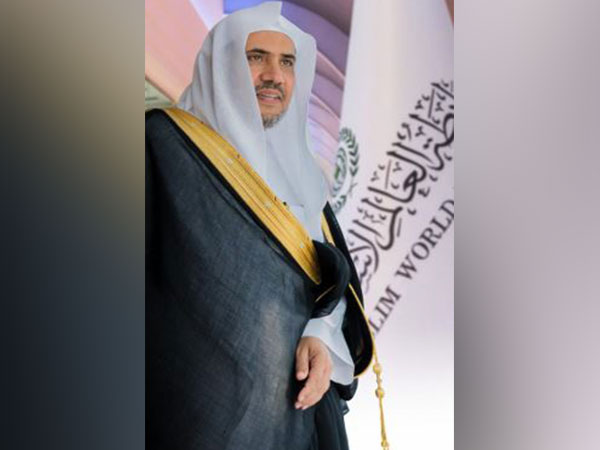The India visit of Dr Mohammad Bin Abdulkarim al-Issa, Secretary-General of the World Muslim League is aimed to communicate the message of moderation and interfaith unity.
His visit to India comes when a debate is raging around Uniform Civil Code. The Law Commission of India has recently initiated a fresh deliberation on the Uniform Civil Code (UCC) and solicited public views on the same. This has resulted in a debate over the recognising women as equal to men, and a uniform law to protect her rights in marriage, divorce and inheritance.
Founded and funded by Saudi Arabia, the Muslim World League or Rabitat al-Alam al-Islami has been active as an International Islamic NGO. Not alien to controversies, it has emerged as a credible and reputable platform for reforms in Islamic ideas world-over.
Dr al-Issa, who served as Justice Minister of Saudi, has established himself as the fountainhead of such reforms.
His rigorous six-day tour will not only focus on interfaith harmony but will also connect Indian political and religious leadership with the leading body of the Islamic world. Dr al-Issa’s visit is also being seen as “peace diplomacy”.
Counter radicalism, promoting religious moderation and building bridges with forces of peace have been key ingredients of India’s foreign policy and in recent years, New Delhi has sought to connect to such voices in the Islamic world. Dr al-Issa’s visit is a pivotal stride in that direction.
Dr Issa’s first interaction with Indian Muslims will be in the company of national security adviser Ajit Doval, who has sought to straighten the curbs of the Indian government’s relations with Muslims and the Islamic world with genuine passion.
The joint session at the India-Islamic Cultural Centre, the hub of all major Muslim-related activities in the national capital, may turn out to be a stormy one. On one hand, people will laud a message of moderation that will echo in their deliberations, they might also seek Dr al-Issa’s understanding of the continued persecution of Indian Muslims under the present dispensation.
Since the World Muslim League, which Dr al-Issa heads, also functions to safeguard Islamic Shariah, people may seek his opinion about under discussion the Uniform Civil Code that is feared to abolish some of the Shariah-guided civil laws of Muslims.
While one may speculate the views of Doval since he represents the government, it will be interestingly curious to know what Dr al-Issa will say.
Until recently, the MWL was considered a “sponsor” of many radical outfits worldwide, including some in India. Post-Iranian Revolution in 1979, the MWL reportedly infused money into building mosques, madrasas and other institutions in India and Pakistan.
It however changed ever since Prince Mohammed Bin Salman, the Saudi crown prince, stepped into the ruling arena and prepared a blueprint for change – the Vision 2030.
Dr al-Issa, an academic and a scholar focused on bringing constitutional colour to state laws, was appointed Secretary General of the MWL. He speaks of the need for a current “interpretation” of the Quran and doing away with the Hadiths that may sow discord.
Dr al-Issa argued in a lecture at Imam Muhammad bin Saud Islamic University in Riyadh in 2012 that Salafism was only an approach and that it should not be viewed as Islam.
He further emphasised that the Salafi approach was moderate and meant following and obeying the ancestors’ beliefs and values in regard to the understanding of Islam.
He advocates for Muslim immigrants to Western countries to integrate socially, in contrast to Wahhabi ideology which has been the official creed of the Saudi monarchy.
Issa is opposed to Political Islam, saying that it does not reflect the true values of Islam and prevents the assimilation of Muslims living in non-Muslim countries.
In July 2022, the Custodian of the Two Holy Mosques King Salman bin Abdulaziz Al Saud appointed Dr Al-Issa the Khateeb of Hajj 1443 Hijri to deliver the hajj sermon from the pulpit of Masjid Nimra. He called on Muslims to avoid all that leads to “dissent, animosity, or division” and stressed that “our interactions are dominated by harmony and compassion”.
His address further asked Muslims “not to give any mind to those who are insolent, have ulterior motives, or seek to obstruct him” in a bid to promote tolerance and understanding.
Dr Al-Issa underscored that Islam had an encompassing spirit whose goodness extended to all of humanity.
One institution that has said Labbayka (I will stick to obeying you again and again) to MBS’ Vision 2030 is the World Muslim League under Dr al-Issa’s leadership.
Dr al-Issa has been interpreting the doctrines and structures of the yet-conservative Islam to suit the requirements of the modern age.
Wahhabi interpretations of Islamic texts and teachings pursued and enforced by bodies like the religious police, the Ministry of Education, and a judiciary trained in Sharia (Islamic law) that retains general jurisdiction have given the Saudi state a religious character with no real parallel in the region.
But as part of the MBS plan, the country’s governing structures are being centralised, remoulded, and reined in. Its religious doctrine is no longer “committed blindly” to the teachings of Muhammad ibn Abd al-Wahhab, or to any “certain school or scholar.”
Dr al-Issa as head of the MWL has landed in India exactly with this message.
The author of this article, Dr Shujaat Ali Quadri is the Chairman of the Muslim Students Organization of India. (ANI)
Read more: https://lokmarg.com/
